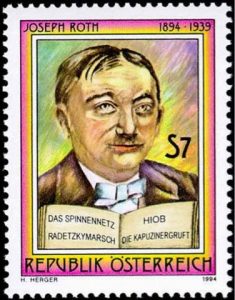Radetzky March – Joseph Roth – 1932

Posted by guillermo maynez on 17/6/2013, 16:29:52
First impressions:
- This novel is a monument and a mausoleum. But it’s alive. Things get damaged, things get broken. The prosperity and pride of the Trotta family were short-lived, but in the absence of a (different fortuitous event, they would have never known a single instance of brilliance: they would have remained forever obscure, poor peasants in Slovenia. And they would have died in WWI, anyway. As for happiness, who can tell what it is and how, if ever, it may come?
- Even in translation, Roth’s poetry and mastery of the novelistic language shines through, with carefully measured but timely metaphors that, little by little, leave a patina of nostalgia that increases the sadness about the Austro-Hungarian Empire’s demise. It is all so beautifully sad!
- It WAS sad: for any shortcomings it may have contained, which were surely not more serious than any political system’s defects, the fact remains that the Empire was a wide space of tolerance, a unique environment for the daily conviviality of many ethnic groups, religions, languages, habits, food, dress, etc. There seems to have been no discrimination against Jews or any other group (note that I’m not deluded about the absolute absence of racist individuals). And certainly there were nationalistic tensions, abuses against workers, and so on. Where was the place without them? But, when one thinks of what came after, there is no doubt, at least in my mind, that the Empire was a much-better solution than nationalism, socialism, or national-socialism. The horrendous 1990’s Yugoslavian wars seem to be direct descendants of the Empire’s destruction.
- The intimate portraits of the characters are difficult to surpass. Even those briefly touched upon, like Emperor Franz Josef and Jacques, Baron Trotta’s valet, made me feel I loved them. Again: it is all so beautifully sad!!